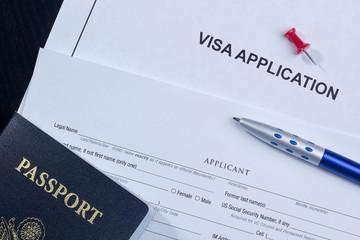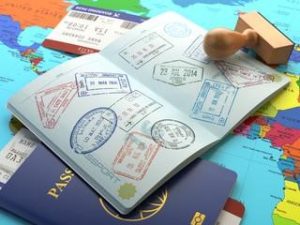Getting your visa application rejected can be heartbreaking. It’s worse if you’ve made countless unsuccessful attempts in the past.
Sadly, that’s the reality faced by millions of visa applicants worldwide.
Many unsuccessful visa applications are attributed to stringent foreign policies by the destination country. However, some are due to the lack of due diligence on the applicant’s part.
We’ve compiled the key things you need to know before applying for a visa.
1. Most Countries Have Special Visa Deals
Normal visa application processes are painstakingly slow. You have to pass through multiple layers of verification, only to be declined in the end.
However, it is unknown to many travelers that most countries have special visa deals for qualifying applicants. A noteworthy mention is the Portugal Golden Visa program, which grants residency and potential Portuguese citizenship to non-EU nationals.
Interested applicants only need to meet certain financial obligations, such as investing at least €200,000 in the country. You could also purchase portugal golden visa properties, an appealing option for real estate investors.
Except for the financial requirements, obtaining the Portugal Golden Visa (and other special visa programs) is easier than applying for a visa the traditional way.
2. Not All Visas Are Made Equal
Visas fall into different groups.
These include business, work, tourist, transit, and student visas. Others are companion, courtesy, and asylum visas.
It’s important to familiarize yourself with each visa category to determine if you’re eligible. Applying for the wrong visa can have you disqualified on the spot.
Note that the eligibility criteria may also vary depending on the specific visa you’re applying for. For instance, a transit visa is typically easier to obtain than, say, an employment visa.
3. A Passport Is Your Primary Identification Document…..
Starting a visa application process without a passport is like embarking on a long road trip without a driver’s license – you won’t get any far.
However, it’s not enough to simply possess a valid passport. The document must be valid for the duration specified by your destination country.
Passport validity periods depend on the reason for traveling. Business and academic tourists typically enjoy longer passport validity periods than leisure travelers.
Either way, remember to establish the document’s expiration date and renew it if necessary.
4. …..But It’s Not the Only Document
There are several other documents required during visa application besides a passport. You must submit all the necessary paperwork for your application to progress to the next stage.
Most consulates will require your birth certificate and recent photographs (even if these are already on your passport).
Other documents will depend on the nature of your travel. For instance, you’ll need to submit an appointment letter if you’re applying for an employment visa, an official invitation letter if you’re a business traveler, and an admission letter if you’re a student tourist.
There are also adoption and marriage certificates if applying for a companion visa.
5. There’s No Such Thing As “Personal Reasons” When Applying for Visas
You’ve probably filled out numerous employment or government forms where you had to indicate “personal reasons” to questions you didn’t feel obligated to answer.
Unfortunately, you won’t enjoy that privilege when applying for a visa.
You must disclose your reasons for wanting to visit the destination country. And the reasons must be convincing enough to the relevant consulate.
6. There’s No Room for Lying
The worst mistake you can make when applying for a visa is to give false information.
Lying about your credentials may grant you an easy entry into another country. But it’s also the surest way to earn a deportation.
So, strive to be factual. Resist the urge to misrepresent your age, professional accomplishments, or criminal record.
Remember, withholding crucial information is tantamount to telling an outright lie. That includes not disclosing previous visa denials by other consulates.
7. Your Health and Finances Matter
Many countries are already grappling with strained healthcare systems. As such, they’re wary of accepting aliens with certain underlying medical conditions.
You may be denied a visa if you suffer from infectious diseases like HIV/AIDS and chlamydia. So, undergoing comprehensive medical screening before starting the visa application process is important.
Visas declined on medical grounds are generally unappealable, except where the applicant seeks treatment for the ailment.
Besides your medical condition, you’ll need to provide evidence of financial ability. Again, the idea is to prevent you from becoming an economic burden on the destination country.
8. Timing Is Key
Most countries process visa applications all year round. That means you can submit your application almost every month of the year.
The emphasis here is on how long in advance you should start the process.
The conventional wisdom is to begin visa applications at least three months before your intended travel date. This will prevent you from making last-ditch efforts to secure an appointment with the consulate.
Late applications can have you miss a once-in-a-lifetime opportunity to live, work, or study in your dream country.
Final Word
There are numerous pitfalls to contend with when seeking entry into a foreign country. Therefore, due diligence is paramount before kick-starting the visa application process.
Remember that in the final analysis, each consulate reserves the right to accept or decline visa applications. That means you could be denied a visa despite your best efforts to provide the required documentation. Fortunately, you can always appeal visa refusals at the relevant embassies or reapply afresh.




